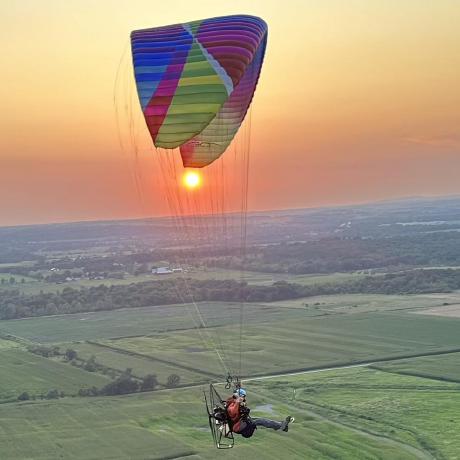Skydiving is a thrilling but dangerous – and sometimes deadly – activity. The Sacramento Bee has determined that since 1985, a staggering 28 people have died just at this one location outside Lodi, known today as the Parachute Center. Skydivers there have run into each other in midair.
They have had their parachutes malfunction. One dropped over nearby Highway 99 – and was slammed into by a semi-truck. Others have escaped mid-air mishaps, but not without serious injuries. A Bee investigation examined the situation, framed by trying to answer specific questions: How does a place where at least 28 people have died stay in business?
And what more can, or should, be done to prevent fatalities? The answers are complicated, but largely come down to this: Despite the inherent danger, skydiving is for the most part unregulated.
Read more at: https://www.sacbee.com/news/investigations/article282562433.html#storylink=cpy
read more: https://www.sacbee.com/news/investigations/article282562433.html
28 people in 39 years… less than 1 per year.
How many skydivers are we talking about? Thousands? Tens of thousands?
100%. This is like saying “Amtrak has killed over 100 people, how are they still in business?”
This article might help… this article is from 2021. I live in the area and this skydiving place has become notorious since about 2014 for being really dangerous. In 2021 SF Gate had 22 people dead there from 1981. 9 of those deaths were from 2016-2021… so it’s been more like 2 or 3 per year. Especially lately. It feels like at least a few times a year I turn on my local news and hear about another person dead there.
This was my first thought as well. ~100 weekend days per year, ~40 years, that’s ~4,000 days just on the weekends. From memory, our tiny plane took up 8 jumpers (4 tandem pairs) and it looked like it was prepared to make plenty of trips per day. But even at a VERY conservative one trip per weekend day, that’s 32,000 jumps.
And FWIW, pretty sure this is the place I actually went skydiving (tandem jump) many years ago. Can’t recall the name, but I doubt Lodi is overloaded with skydiving centers. They seemed to be relatively busy with people there who were not randos like me but regulars with their own gear who looked like they did this often. I would not be surprised if the number of total jumps over 4 decades was well into the hundreds of thousands if not millions.
Also, to figure out if this particular area is dangerous, they would need to compare the death rate there to the death rate in other skydiving spots. Otherwise, they’re just pointing out that skydiving is a potentially deadly activity. Everyone that skydives knows that.
I did a tandem jump at my local skydiving place, and we hit the ground much much harder than I would have expected. I was bruised up for a month.
My tandem partner said: “Sorry about that. They gave us the worst parachute.”
(⊙_⊙')
Yeah, some tandem parachute designs just have a shittier flare (compared to the new stuff)
Isn’t there some sort of oversight? If not a national licensing organisation, what about local business licensing organisations, insurance organisations, or law enforcement and judicial organisations? A quick Google says the average death rate is 0.28 deaths per 100,000 jumps. If this place has facilitated somewhere around 10,000,000 jumps, then this seems statistically normal. Otherwise, if they have far fewer jumps than that, I’m surprised insurance or local business licensing organisations aren’t dropping them or shutting them down, or local law enforcement isn’t investigating them for negligence or incompetence.
The authors of the article are just as incredulous as you are. No, there’s no oversight. The FAA (for example) does license and regulate some things, but very, very little that specifically targets skydiving.
As businesses go, the laws are astonishingly loose, especially considering how dangerous skydiving can be.
If you’re willingly jumping out of an airplane just for the thrill of it, then yeah, you probably should get real comfortable with the idea that you might actually die doing it. So, calculated risk and all that.
Skydiving is actually pretty heavily regulated… especially the gear and for tandem students.
Additionally most drop zones are also USPA affiliated which has more rules and regulations especially for sport/solo jumpers (Although Lodi isn’t)
I trust skydiving equipment and instructor training much more than bungee jumping or any other ‘extreme sport’
I read it as in last year and thought that is a bit much. But over almost 40 years? How are driving schools still afloat in your opinion?
ITT: geniuses that didn’t read the article asking questions that were answered, explored, or refuted by the article.






